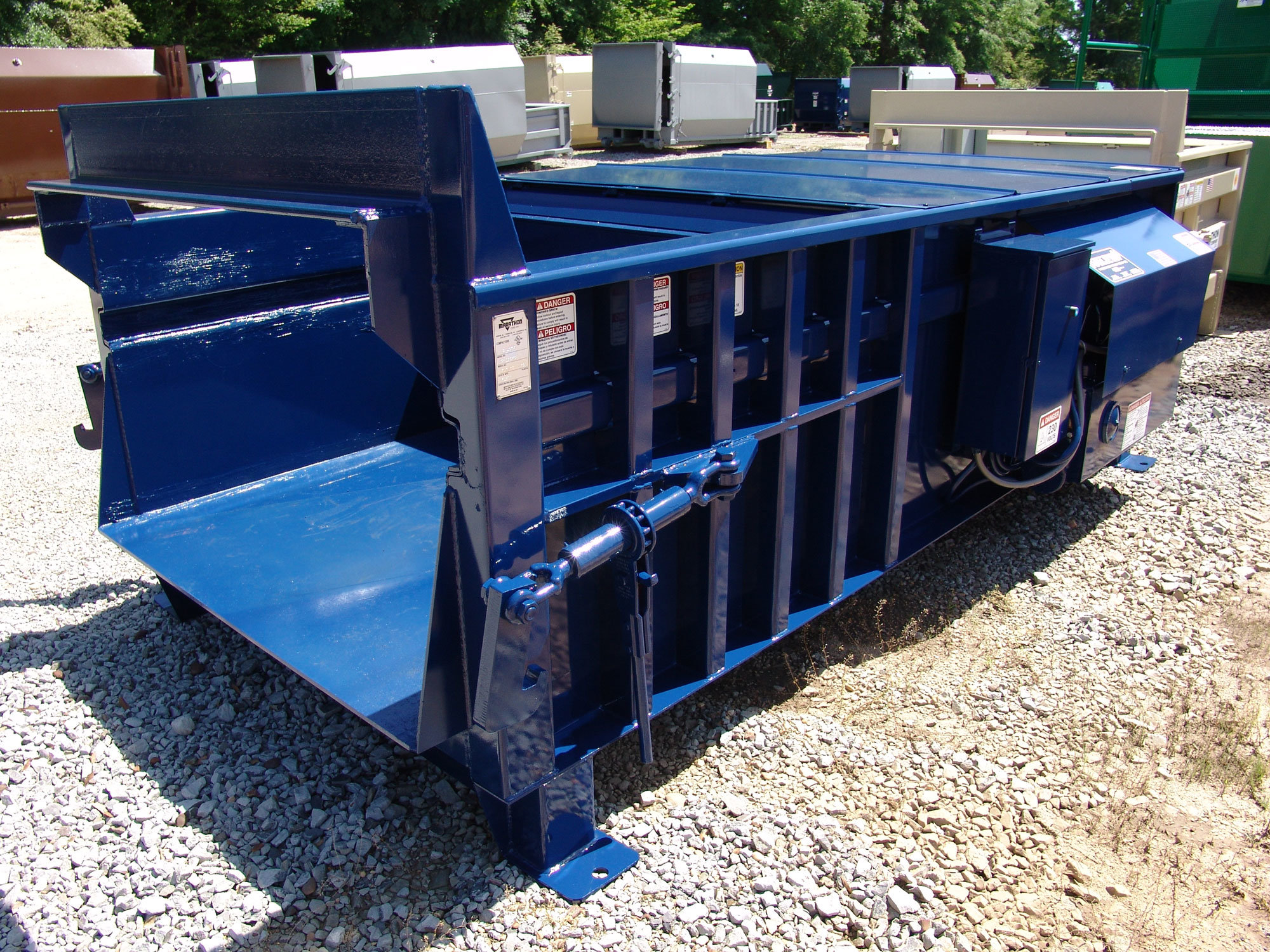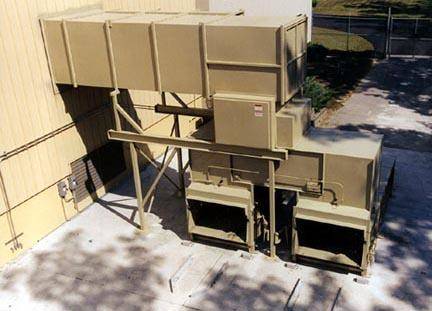Just How Waste Equipment Enhances Performance in Garbage Compactor Workflow
Waste Equipment plays an essential role in enhancing the performance of trash compactor procedures. By employing advanced sensors and automation, these systems boost compaction cycles and monitor tons capabilities effectively. This assimilation not just saves power yet also decreases pick-up frequency and associated expenses. As companies progressively adopt these modern technologies, the effects for operational sustainability and monitoring methods end up being more clear. What various other advantages might emerge from these improvements in waste Equipment?
The Duty of Advanced Sensors in Compaction Effectiveness
Advanced sensing units play a necessary duty in improving the efficiency of garbage compactors. These sophisticated devices keep track of different parameters, including lots capability, moisture degrees, and compaction cycles, permitting real-time modifications. By precisely gauging the amount of waste, sensing units allow compactors to optimize their operation, ensuring that power consumption is decreased while optimizing the volume of waste refined.
Progressed sensing units contribute to predictive upkeep by determining possible problems before they lead to Equipment failure. This proactive approach not just reduces downtime however likewise expands the life expectancy of the compactor. On top of that, data accumulated from these sensing units can be assessed to enhance functional techniques, resulting in enhanced waste management practices. Generally, the combination of advanced sensing units in garbage disposal considerably improves their performance and functional effectiveness, translating right into price financial savings and a much more lasting strategy to waste disposal.
Longevity and Style: Products That Matter
The toughness and design of garbage compactor hinge substantially on the products made use of in their building and construction. Premium steel is commonly the primary selection, offering toughness and resistance to deterioration. This durable material endures the enormous pressure exerted during compaction, guaranteeing long life and reliability. Additionally, components such as hydraulic systems are generally crafted from corrosion-resistant alloys to stop deterioration gradually, enhancing operational effectiveness.
Style also plays a crucial role in performance; calculated reinforcements and ergonomic forms can substantially influence efficiency. Manufacturers often prioritize modular designs, enabling easier repair and maintenance. Additionally, improvements in finish innovations, such as powder coating, improve resistance to ecological aspects, including wetness and chemicals. Eventually, the careful selection of materials not just enhances the structural integrity of trash compactors yet additionally adds to their general efficiency and efficiency in waste administration operations.
Automation and Smart Technology in Waste Equipment

Automated compactors can optimize compaction cycles based on the volume of waste, maximizing area and boosting operational effectiveness. Integration with mobile applications permits users to keep track of and regulate compactors from remote places, boosting convenience and responsiveness. By adopting these technologies, waste management companies can not just enhance their functional process yet likewise add to more sustainable techniques by blog lessening waste and maximizing resource usage. Overall, automation and smart technology stand for a significant leap ahead in the performance of garbage compactor procedures.
Data Analytics for Optimizing Waste Monitoring
Utilizing information analytics uses waste administration business a powerful device for boosting and enhancing procedures efficiency. By gathering and evaluating information from different resources, such as compactor performance metrics and waste generation patterns, companies can obtain beneficial insights. These understandings allow them to make enlightened decisions relating to collection timetables, compactor use, and maintenance needs.
In addition, predictive analytics can forecast waste generation trends, enabling business to assign resources much more efficiently and prevent prospective overflows or underutilizations of Equipment. Real-time surveillance with information analytics additionally enhances the capability to react promptly to operational challenges, lowering downtime and boosting service reliability.
Additionally, integrating information analytics with existing waste administration systems promotes a society of continual enhancement. By tracking and recognizing inadequacies performance gradually, firms can improve their procedures and take on ideal techniques, inevitably leading to a much more efficient and lasting waste administration strategy.
Expense Cost Savings Via Boosted Functional Effectiveness
By lessening and streamlining procedures waste, business can accomplish considerable here price financial savings in their waste monitoring procedures. Improved operational efficiency in garbage disposal reduces the regularity of pickups, causing lower transportation costs. Additionally, progressed waste Equipment permits maximum compaction, making the most of container capacity and minimizing the requirement for extra containers.
This enhanced efficiency not only decreases garbage disposal charges but likewise prolongs the lifespan of Equipment, decreasing upkeep costs. Automated monitoring systems give real-time information, enabling for positive changes in waste handling, which can additionally enhance performance and reduce unplanned expenses.
Additionally, robust training programs for team on Equipment usage can cause improved operational techniques, better driving down expenses. Ultimately, the combination of effective waste Equipment cultivates an economical waste monitoring approach that benefits companies monetarily while making sure smoother procedures.
Ecological Impact: A Sustainable Technique to Waste Administration

Carrying out reusing initiatives along with compaction procedures enables firms to divert products from land fills, advertising circular economy concepts. Businesses that take on eco-friendly practices not only improve their corporate obligation however likewise attract significantly eco-conscious customers. By prioritizing sustainability in waste administration, companies can accomplish a twin advantage: improving operational effectiveness while actively adding to ecological preservation. This balanced technique settings businesses as leaders in sustainable practices, promoting a much healthier earth for future generations.
Regularly Asked Inquiries
Just How Commonly Should Waste Equipment Be Preserved for Optimal Efficiency?
The frequency of maintenance for waste Equipment usually relies try this website on usage and producer suggestions - Industrial waste compaction equipment. Normally, assessments should occur quarterly, with complete servicing each year to guarantee peak efficiency and protect against prospective malfunctions or inadequacies
What Kinds of Waste Can Be Processed in Garbage Compactors?
Garbage compactor can process various kinds of waste, including cardboard, paper, plastics, and non-hazardous food waste. However, customers should prevent compacting hazardous products, steels, and fluids to ensure safe and effective procedure.
Are There Security Features in Modern Garbage Compactors?
Modern trash compactors often include safety and security attributes such as automated shut-off mechanisms, emergency quit buttons, and sensor systems (Industrial waste compaction equipment). These enhancements are made to shield customers from prospective threats throughout operation, promoting a safer working setting
Exactly How Does Waste Equipment Impact Labor Needs?
The effect of waste Equipment on labor requirements is considerable; it often minimizes the requirement for manual work, enhancing and improving processes performance. Less employees are required, permitting companies to allot resources much more efficiently.
What Is the Ordinary Lifespan of a Garbage Disposal?
The ordinary life expectancy of a garbage compactor normally varies between 10 to 15 years, depending upon usage, maintenance, and environmental variables. Normal servicing can expand this life expectancy, making certain excellent performance and reliability throughout its functional years.
By embracing these modern technologies, waste monitoring business can not only improve their functional operations however also contribute to more sustainable practices by decreasing waste and enhancing source usage. By simplifying procedures and lessening waste, firms can achieve significant price financial savings in their waste monitoring procedures. Lasting waste administration strategies, specifically in trash compactor operations, contribute significantly to minimizing landfill waste and reducing carbon footprints. Modern waste Equipment is developed to optimize compaction, consequently decreasing the volume of waste requiring disposal. Garbage compactors can refine numerous types of waste, consisting of cardboard, paper, plastics, and non-hazardous food waste.